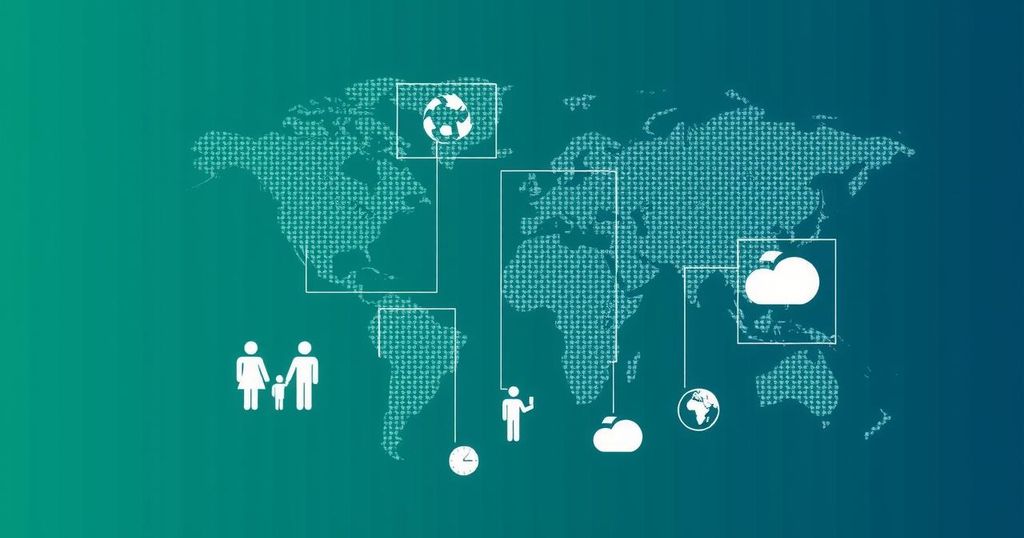World Evidence-Based Healthcare Day: A Call for Action on Climate and Health Resilience

World Evidence-Based Healthcare Day, celebrated on October 20, emphasizes the importance of evidence-informed healthcare policies. The 2024 Future of Health Conference, themed ‘From Evidence to Action: Building Resilience at the Climate-Health Nexus,’ aims to address the critical challenges posed by climate change on health, particularly in Nigeria. The conference will showcase strategies and innovations that link climate data with healthcare to enhance resilience against climate impacts, drawing lessons from successful initiatives in countries like Rwanda and Kenya.
World Evidence-Based Healthcare Day (EBHC) is observed annually on October 20 to advocate for the development of evidence-informed healthcare policies aimed at elevating global health outcomes. This year’s theme, “Beyond Health: From Evidence to Action,” highlights the necessity for intersectoral collaboration in fortifying resilient health systems amidst pervasive social, economic, and ecological challenges like climate change. For three decades, proponents of EBHC Day have underscored that the evolution of healthcare is reliant upon collective efforts across multiple sectors including health, environment, policy, and technology. They assert that addressing critical global challenges necessitates cooperation and the transformation of generated evidence into actionable strategies that can improve health outcomes and bolster resilience. In alignment with these goals, Nigeria Health Watch is organizing the 2024 Future of Health Conference, centered on the theme “From Evidence to Action: Building Resilience at the Climate-Health Nexus.” This conference will delve into the intricate relationship between climate change and human health, offering a vital platform to discuss approaches that can mitigate the detrimental effects of climate change on the healthcare system. Nigeria epitomizes the challenges posed by climate change, as its vast population confronts rising temperatures, severe flooding, and altered rainfall patterns which threaten food security and worsen diseases such as Malaria and Cholera. As highlighted in the Pan African Medical Journal, devastating floods have placed immense strain on the country’s healthcare infrastructure, particularly in rural regions where access is already limited. The Future of Health Conference 2024 aims to foreground these pressing issues within the Nigerian context, showcasing innovations and evidence-based methodologies that tackle both health and climate challenges. For instance, Nigeria’s fight against vector-borne diseases such as Malaria can be enhanced through the utilization of climate data to anticipate mosquito breeding patterns, facilitating effective outbreak mitigation. Furthermore, urban planning informed by climate and health data can play a significant role in reducing the risks associated with flooding and the spread of infectious diseases, particularly in densely populated coastal cities like Lagos. By promoting partnerships across diverse sectors including healthcare, agriculture, and environmental management, Nigeria can establish a model for evidence-based action addressing the unique challenges at the intersection of climate and health. In contrast, other nations, such as Rwanda and Kenya, have made notable advancements in bridging the gap between research evidence and actionable strategies. For example, Rwanda has successfully harnessed community health workers (CHWs) to improve health outcomes for diseases such as malaria and pneumonia, demonstrating how evidence-informed policies can enhance health systems within low-resource settings. Likewise, Kenya’s climate-smart agriculture strategy illustrates the integration of evidence-based methods to bolster resilience against climate change while enhancing food security. As Nigeria endeavors to replicate these successes, the fostering of multisectoral collaborations among researchers, healthcare professionals, climate specialists, and policymakers is essential. Such collaborations will facilitate the implementation of evidence-based approaches that directly address current health issues while simultaneously fortifying resilience against future challenges. The upcoming Future of Health Conference stands poised to ignite crucial discussions at the convergence of climate change and health, thereby advancing evidence-based policy solutions to these pressing challenges.
World Evidence-Based Healthcare Day was established to highlight the importance of evidence-informed approaches in healthcare policy-making, promoting collaboration across various sectors to tackle global health challenges. The day serves as a platform where researchers, policymakers, and health professionals can share innovative solutions and insights aimed at enhancing health outcomes. The significance of addressing climate change as a pressing global threat that affects health is underscored in current discussions, particularly as it pertains to nations like Nigeria which are acutely vulnerable to these changes. The upcoming Future of Health Conference aims to explore the relationship between climate and health, demonstrating the necessity for integrated strategies that bolster both healthcare systems and resilience to climate impacts.
In conclusion, World Evidence-Based Healthcare Day underscores the critical need for evidence-based strategies to address the intersection of health and climate challenges. The 2024 Future of Health Conference represents a pivotal opportunity for stakeholders to collaborate on actionable approaches that enhance health outcomes in the face of climate change. By learning from successes in other nations and fostering multisectoral partnerships, Nigeria and other vulnerable countries may effectively navigate the complexities of climate impacts on health, ultimately transforming evidence into meaningful action.
Original Source: nigeriahealthwatch.medium.com






